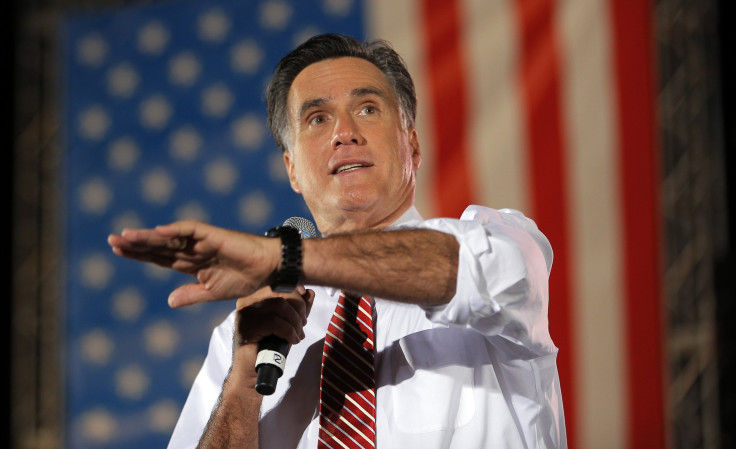Romney To Hit Obama On Foreign Policy, Invoking Libya Stumbles

Attacks on American diplomatic outposts in the Middle East demonstrate President Obama's broader foreign policy ineptitude, Mitt Romney will say in a Monday speech at the Virginia Military Institute.
Since the beginning of the campaign, Romney has characterized Obama's foreign policy as indecisive and faltering, simultaneously conciliatory to foes and standoffish to allies. The administration has responded by underscoring its successes, including the death of Osama bin Laden, the exit of American troops from Iraq and an effective drone warfare campaign against Al Qaeda and its affiliates.
But the violence engulfing the Middle East over the last month, including an attack on a consulate in Benghazi, Libya that left four Americans dead including Ambassador Chris Stevens, has offered Romney an opening.
“The attacks on America last month should not be seen as random acts,” Romney will say, according to planned remarks released to the media. “They are expressions of a larger struggle that is playing out across the broader Middle East — a region that is now in the midst of the most profound upheaval in a century."
The Republican nominee was initially faulted for linking President Obama to a statement, issued by the U.S. Embassy in Cairo before riots erupted in Egypt, that condemned a movie insulting the Prophet Muhammad for having "hurt the religious feelings of Muslims." Romney said the statement indicated the administration's decision to "sympathize with those who waged the attacks."
After enduring some criticism for having politicized the deaths of four Americans, Romney continued to press his point. He has been partially vindicated by the Obama administration's sometimes confused response to the assault in Libya, which officials first described as a random attack by individuals before conceding it bore the signs of a concerted assault potentially involving Al Qaeda.
"The attack on our Consulate in Benghazi on Sept. 11, 2012, was likely the work of the same forces that attacked our homeland on Sept. 11, 2001," Romney will say. "This latest assault cannot be blamed on a reprehensible video insulting Islam, despite the Administration's attempts to convince us of that for so long."
That claim is not entirely true. While administration officials condemned the offending video -- a film entitled "Innocence of Muslims" that portrays the prophet Muhammad as a womanizer and a pedophile -- and said it was tied to protests erupting throughout the Middle East, they stopped short of suggesting the film was directly responsible for the attacks in Libya.
But Romney's speech will enlarge on a foreign policy strategy he has pursued throughout his campaign: faulting Obama for timid responses to threats abroad and saying that a Romney administration would react more aggressively.
“I know the President hopes for a safer, freer, and a more prosperous Middle East allied with the United States,” Romney plans to say. “I share this hope. But hope is not a strategy.”
The Obama administration has already released a statement dismissing the notion that Romney has the authority to dictate foreign policy.
"This is the same guy who, when he went overseas on his trip, the only person who has offended Europe more is probably Chevy Chase," campaign spokeswoman Jen Psaki told reporters traveling on Air Force One Sunday, according to POLITICO, adding that "when he had the opportunity to speak directly to the American people about his plans on domestic and foreign policy issues, as we all remember, he didn’t bring up Afghanistan, he didn’t bring up the troops."
© Copyright IBTimes 2024. All rights reserved.











